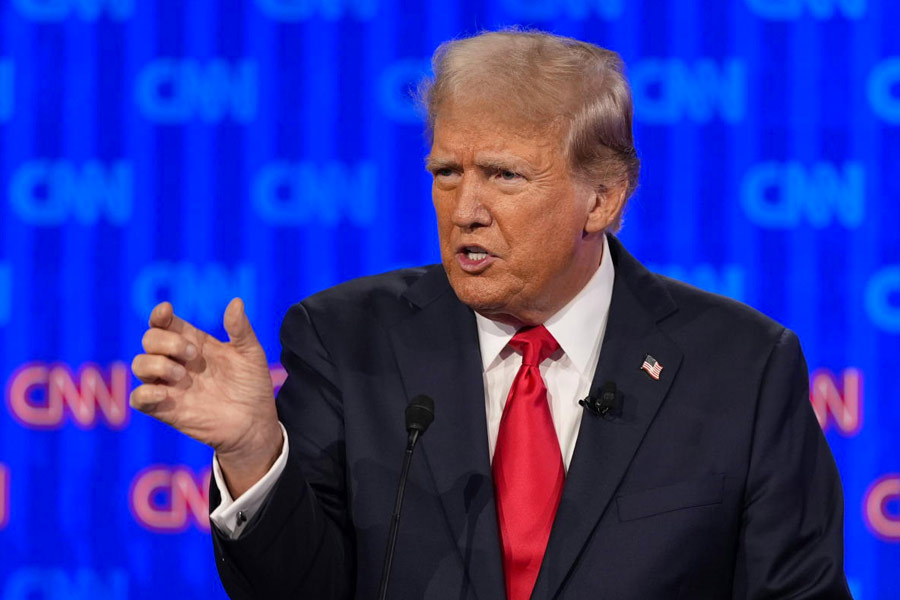For the second time in three election cycles, Donald Trump has won the presidency of the United States of America and a prominent woman candidate has lost. Mr Trump had defeated the former secretary of state, Hillary Clinton, in 2016. Last week, he beat the vice-president, Kamala Harris, to stomp back to power. While analysts are still decoding the myriad, complex reasons for Mr Trump’s fresh win, one inescapable fact hovers over the US’s political process: in nearly 250 years of democracy, the US has not elected a single woman president. That half the country’s population has never had representation in the Oval Office is an indictment of America’s political system as well as its values. It is also a sad reflection on the gulf between the seeming progress women have made in many fields in the US and across the world on the one hand and their apparent inability — for the most part — to shatter the proverbial glass ceiling of high political office. This is not to suggest that the bias is limited to the US alone. Four out of the five permanent members of the United Nations Security Council — China, Russia and France, apart from the US — have never had a woman president. China has never even had a woman on its Politburo Standing Committee, the ruling communist party’s most powerful body. Japan, an economic powerhouse and a global player of significance, has never elected a woman prime minister either.
There have, of course, been exceptions. South Asia, in particular, has been a shining example when it comes to electing women leaders to influential offices — from Sirimavo Bandaranaike in what was then Ceylon to Indira Gandhi in India, Benazir Bhutto in Pakistan to Sheikh Hasina Wazed and Begum Khaleda Zia in Bangladesh. Indonesia, Israel, Thailand and South Korea are among other nations that have followed this path as have Australia, New Zealand, the United Kingdom, Italy, Argentina and Brazil. Yet these remain relatively isolated instances in a global political landscape still dominated overwhelmingly by men. In the just concluded US election, Ms Harris won a smaller fraction of even the female vote than the outgoing president, Joe Biden, did four years ago, also against Mr Trump. Some of the consequences of this lack of representation have been tumultuous for women’s rights in the US. Mr Trump packed the US Supreme Court with conservative judges who overturned the nationwide right to abortion. The message is clear: convincing voters, even women voters, to back a woman presidential candidate in the US and much of the world remains a challenge.











